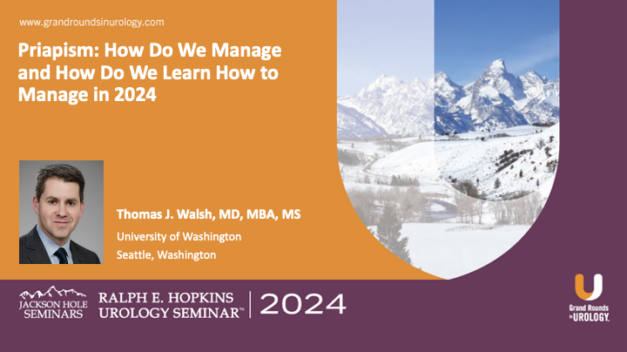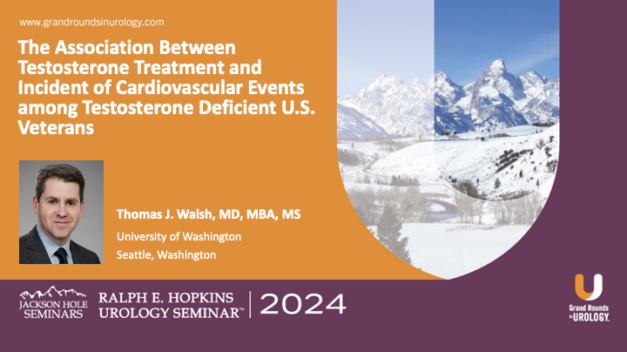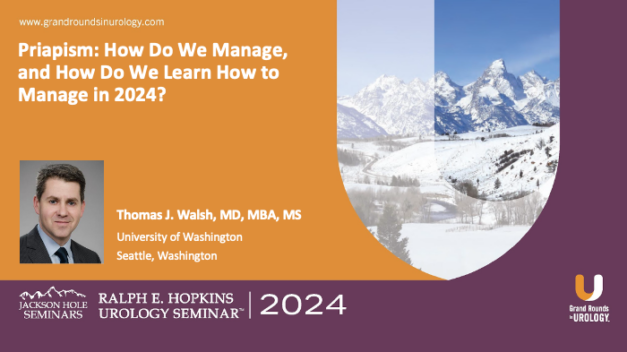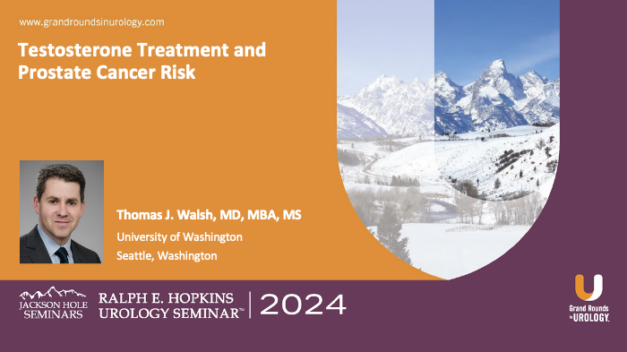Priapism: How Do We Manage and How Do We Learn How to Manage in 2024
Thomas J. Walsh, MD, MBA, MS, discusses practical strategies for evaluating, diagnosing, and managing ischemic priapism. He begins with an overview of the symptoms, diagnosis, associated risks, and standard treatment procedures for the management of ischemic priapism.
Dr. Walsh then turns to effective treatment options after intracavernosal phenylephrine and corporal aspiration fail. He outlines various types of distal shunting, corporal tunneling, penoscrotal decompression, and early prosthesis placement.
Dr. Walsh concludes by addressing the lack of standardized training for treating ischemic priapism. He outlines a simulation curriculum designed to quickly train and presents the results from the pilot study.
Read More




